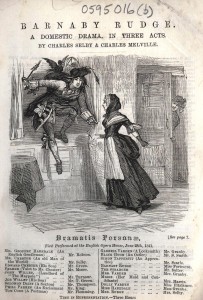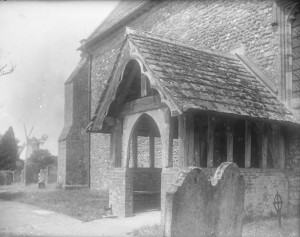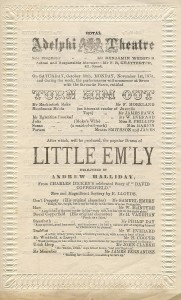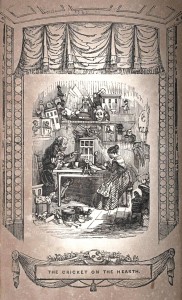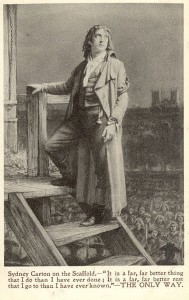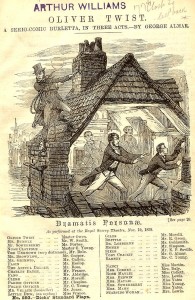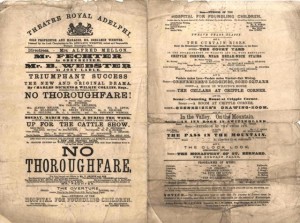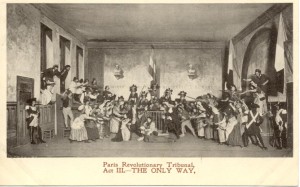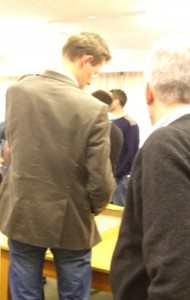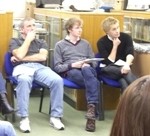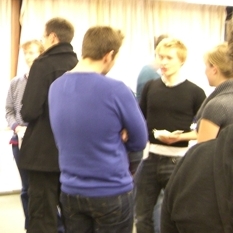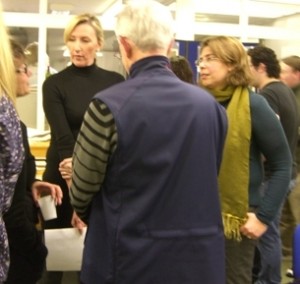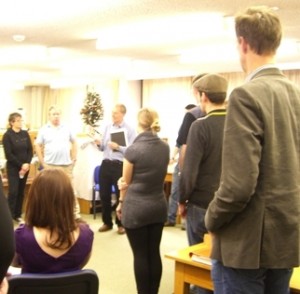It feels like time is rushing by more and more quickly: suddenly we’ve come to the end of another term! In some ways, it’s been a long time since Christmas – one exhibition, one lecture, several seminars, a new microfilm service and new plans hatching for the next academic year. Looking back on it all, as ever, I begin to wonder how we managed to fit it all in!
Well, we’re very proud of the Dickens exhibition – if you haven’t been do make the effort and let us know what you think by writing in the comments book. Webpages for the Dickens Collection are still under construction – their progress is being slowed a little by other commitments, but they’re getting there! The Dickens display case in the entrance hall has now been refilled with Rudyard Kipling materials; do take a look at this if you get the chance. We have several first editions of Kipling’s work in our Modern First Editions Collection, including the pamphlet containing two previously unpublished Christmas letters from Kipling to young readers, generously donated by David Alan Richards through Dr. Kaori Nagai.
It was a great pleasure to welcome the University’s Melodrama Research Group into Special Collections this term and to discuss the possibilities of future research projects based on the Melville and Boucicault Collections. Lecture two in our three part series, given by Dr. Charlotte Sleigh at the Cathedral, was well attended and thoroughly enjoyed by all – we hope to purchase Dr. Sleigh’s new book ‘Frog‘ for the collection.
Of course, the day-to-day work is continuing apace, with the invaluable support of our small team of volunteers who are investigating various collections in our care. One of these is the Hendrie Collection, research notes by Andrew Hendrie, who completed his PhD ‘Coastal Command, 1939-1945 : the Cinderella service‘ at the University in 2004 and later published this as a book. The collection is full of interesting and moving anecdotes from Second World War pilots across the world, and we have just begun to catalogue it. More news on this soon, we hope! Work on the Renfrew Collection is gradually edging towards public access, too and we hope to complete some cataloguing on the Donald Muggeridge Rural Collection in the next few months.
On top of that, there are some germs of ideas including colloqia, Twitter feeds and online payments which we will be investigating throughout the next year. Still to come, of course, are two more Dickens exhibitions and no doubt a summer getting involved in research while hopefully carrying on with our cataloguing and digitisation plans.
So that’s all for the next term, and the next year. For the time being, as we await the launch (in our very own reading room) of sixteen books self-published by the sixteen students of The Book Project module, we would like to wish you all a very happy, peaceful and relaxing Easter.
As ever, if you have any queries, please do get in touch.

